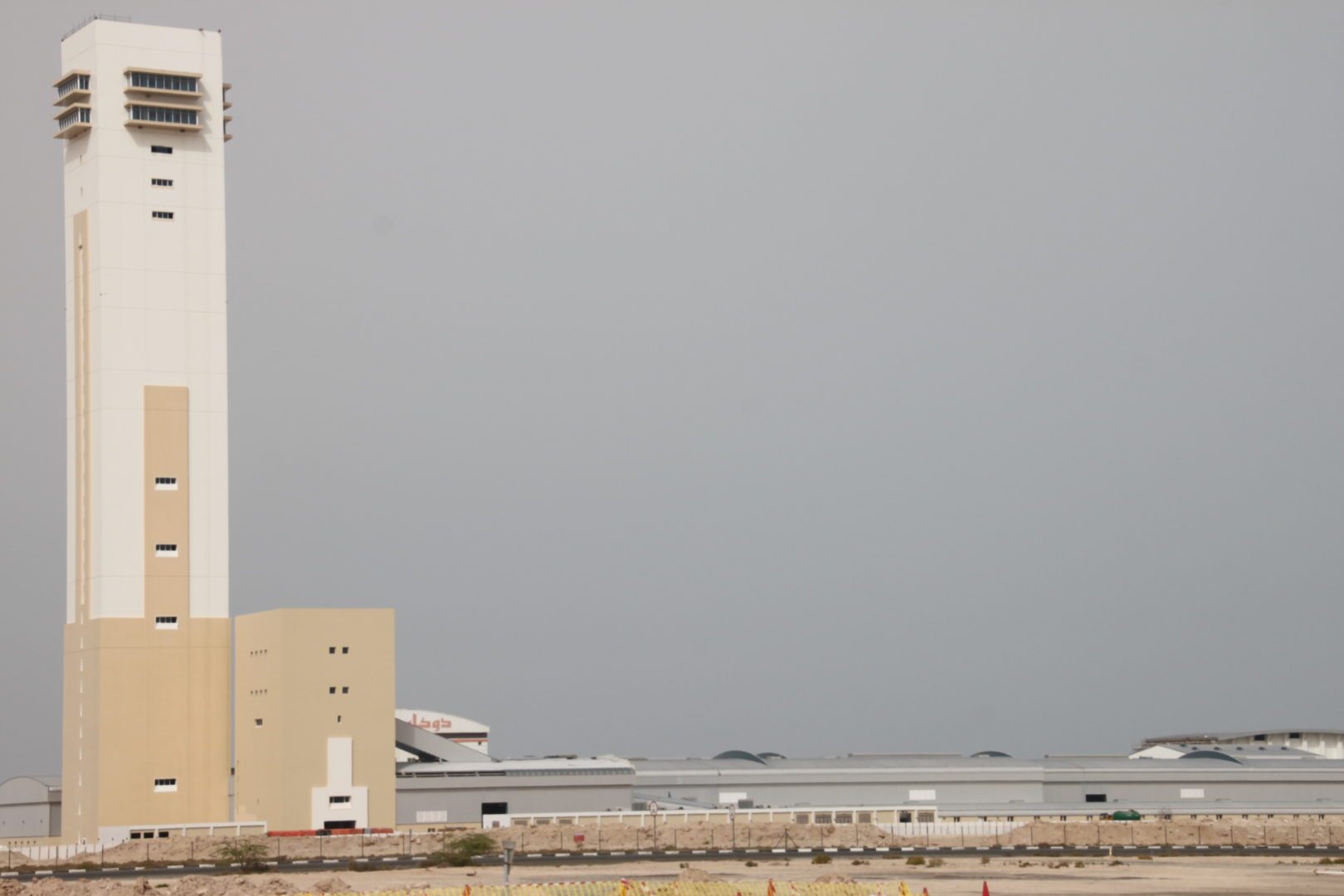

Dubai-based cables manufacturer close to completing new plant in Abu Dhabi, says managing director
Dubai Cable Company (Ducab) will be familiar to many in the UAE, with its 148-metre-high tower rising out of the coastal desert between Jebel Ali port and the emirates border with Abu Dhabi.
Completed in 2011, the high-voltage cable plants tower is a relatively recent addition for a manufacturer with a 37-year history in the UAEs industrial sector.
Andrew Shaw, managing director of Ducab since 2008, has led the company through a period of significant expansion and is preparing to start up its first aluminium plant in Abu Dhabi later this year.
Ducab is expanding into a tough market, with some of its main customers builders of infrastructure and utility projects in the GCC cutting spending in reaction to low oil prices.
The firm has also faced a collapse in metals prices over recent years that has affected both its raw materials and sales prices.
Aluminium manufacturing
Ducab Aluminium Company (DAC), the companys first move into aluminium manufacturing, will take primary aluminium straight from the Emirates Global Aluminium (EGA) smelter in Khalifa Industrial Zone Abu Dhabi (Kizad).
The AED220m ($60m) plant will have the capacity to produce 50,000 tonnes a year (t/y) of aluminium rods, of which 16,000 t/y will be converted onsite into finished overhead conductors.
We expect to be producing commercially in the second half of this year, Shaw told MEED in an interview at Ducabs cable manufacturing site in Jebel Ali. We will be commissioning during the second quarter and we hope to be shipping our first commercial rod in July.
Mechanical installation is complete and we are now doing the electrical and the plumbing and we have started marketing the rod and contacting customers, Shaw added.
Taking hot metal straight from the smelter saves on costs for both companies as EGA will not cast the primary aluminium and Ducab does not have to melt the product. DAC is part of Abu Dhabis strategy to create a metals cluster at Kizad using the aluminium smelter to provide raw materials.
Aluminium extrusions
The other project is an aluminium extrusions plant that was recently completed at the site by Taweelah Aluminium Extrusion Company (Talex). Abu-Dhabi-based holding company Senaat, the owner of Ducab, also owns Talex as well as 100 per cent of the UAEs largest steel producer, Emirates Steel.
Aluminium rod and copper rod are both used as raw materials in cable manufacturing. Although copper rod is smaller and a better conductor, aluminium is cheaper and is suitable for projects that can accommodate larger cables. Ducab already produces copper rod in Abu Dhabi, so, after the start-up of DAC, the firm will be able to offer both products to the same customers.
The GCC is less aluminium-intensive than the European markets, but there is a slow move for aluminium to replace copper in some applications such as utility cables, particularly for medium voltage, said Shaw. Saudi Arabia has been leading the charge with this to use more aluminium in their network.
Ducab hopes to replace some of the substantial volumes of aluminium rod that are being imported into the region largely from Asia. The vast majority of aluminium rod produced at DAC will be sold to customers rather than used for internal consumption, Shaw said.
Ducab has no specific schemes planned after the completion of DAC, but is looking for opportunities to develop products for specialist sectors.
In 2014, the company acquired AEI Cables, based near Newcastle in northern England, expanding Ducabs portfolio into cables for industries such as defence.
Metal price collapse
Metals manufacturers have been hit by a sharp collapse in prices over recent years. The price of aluminium has fallen from a peak of about $2,300 a tonne in early 2012 to a price of about $1,500-$1,600 a tonne in early 2016. Copper prices dropped from about $3.9 a pound in early 2012 to a current price of about $2.1 a pound in early 2016.
The fall in prices affects us because it reduces the size of our balance sheet, so we invest less money in working capital but fundamentally it doesnt drive demand, said Shaw.
It does make projects cheaper, making buildings more economical. It has driven a negative sentiment, so people are less willing to build even though it is cheaper to do so.
Ducabs three biggest markets are in the utilities, construction, and oil and gas sectors. The company has been supplying cables to some of the regions largest oil and gas megaprojects, including the expansion of Abu Dhabis offshore Upper Zakum field and Kuwaits Clean Fuels Project.
Cable is generally ordered to be installed towards the end of a construction scheme, sometimes six to nine months after the ground is broken. This means the impact of lower oil prices on project spending in the GCC will have a delayed effect on cables suppliers such as Ducab.
Obviously we are concerned about the number of new projects being announced for 2017 and 2018, said Shaw. On the other hand it is very easy to talk yourself down. Qatar is still busy. Dubai is going to remain busy because of Expo 2020.
All of the GCC countries will continue to spend on basic infrastructure such as housing, hospitals and schools. There is a lot of activity in the GCC. Our job is to make sure we win it.
You might also like...

Acwa Power eyes selective asset sales
24 April 2024

Bahrain mall to install solar carport
24 April 2024

Aramco extends Karan field bid deadline
24 April 2024

Muscat appoints expressway consultant
24 April 2024
A MEED Subscription...
Subscribe or upgrade your current MEED.com package to support your strategic planning with the MENA region’s best source of business information. Proceed to our online shop below to find out more about the features in each package.




